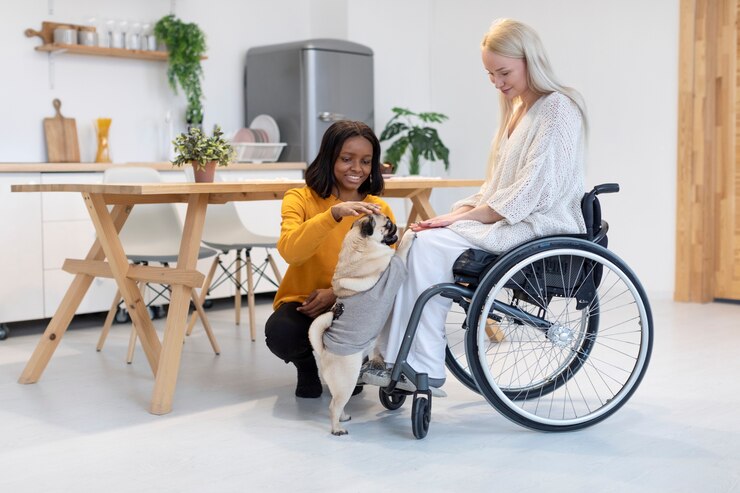In a world that is diverse and inclusive, it’s crucial to understand how to provide proper care and support for people with disabilities. Individuals with diverse abilities navigate the world in unique ways, and fostering an environment of understanding and empathy is essential. In this blog post, we will explore practical tips on how to take care of people with disabilities, ensuring they feel respected, empowered, and included in every aspect of life.
Table of Contents
ToggleFoster Open Communication
One of the first steps in caring for someone with a disability is establishing open communication. Ensure that you maintain a respectful and inclusive dialogue, acknowledging their preferences, needs, and any specific requirements they may have. Ask questions about their experiences and actively listen to their concerns, making adjustments as necessary to create a comfortable and supportive environment.
Educate Yourself
Understanding the specific needs and challenges faced by individuals with disabilities is crucial. Take the time to educate yourself about various disabilities and the accommodations that may be necessary. This knowledge will empower you to provide better care and support tailored to the individual’s unique circumstances.
Create an Inclusive Environment
Modify physical spaces to be accessible to everyone, regardless of their abilities. This may include installing ramps, widening doorways, and ensuring spaces are well-lit and free of obstacles. A welcoming and inclusive environment fosters a sense of belonging and enables individuals with disabilities to participate fully in various activities.
Be Patient and Flexible
Caring for someone with a disability may require additional time and patience. Be flexible and understanding, adapting your approach to accommodate their needs. Recognize that everyone moves at their own pace, and providing ample time for tasks and activities will contribute to a positive and supportive relationship.
Offer Assistance with Respect
When offering assistance, it’s crucial to do so respectfully and in a manner that preserves the individual’s dignity. Always ask for permission before providing help, and inquire about their specific preferences. Respect their independence while offering support when needed, and avoid making assumptions about their capabilities.
Advocate for Inclusion
Advocate for the inclusion of people with disabilities in all aspects of life, including education, employment, and social activities. Encourage the implementation of inclusive policies and practices in your community, workplace, and educational institutions. By advocating for inclusion, you contribute to creating a more accessible and accepting society.
Support Emotional Well-being
Caring for people with disabilities goes beyond physical assistance. Pay attention to their emotional well-being and provide a supportive and understanding presence. Be mindful of the challenges they may face and offer encouragement and empathy. Creating a positive emotional environment is essential for fostering a sense of belonging and mental well-being.
Conclusion
Taking care of people with disabilities is a collective responsibility that requires empathy, understanding, and proactive efforts to create an inclusive and accessible world. By fostering open communication, educating ourselves, creating inclusive environments, and advocating for inclusion, we can contribute to a society where everyone is valued and empowered, regardless of their abilities. Through these efforts, we can build a more compassionate and supportive community for individuals with disabilities to thrive.






